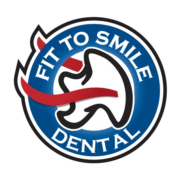Welcome to Fit To Smile Dental! Today, we’re delving into a topic that affects many of us: the effects of soda on our teeth. While soda may be a popular beverage choice for its fizzy taste and refreshing feel, it’s essential to understand how it can impact our dental health.
In this article, we’ll explore the various ways in which soda consumption can harm our teeth, from cavities to enamel erosion. But don’t worry, we’re not here to lecture you or tell you to give up soda entirely. Instead, our goal is to provide you with valuable insights so you can make informed decisions about your oral health.
So, grab a seat, and let’s dive into the fascinating world of soda and its effects on your teeth!
Understanding the Impact of Soda on Teeth
Soda, often loaded with sugar and acids, can wreak havoc on your dental health in several ways. Here’s a closer look at how soda affects your teeth:
- Sugar Content: Most sodas are packed with sugar, which bacteria in your mouth feed on. As bacteria consume sugar, they produce acids that attack tooth enamel, leading to decay and cavities.
- Acidic pH: Even diet sodas, which are sugar-free, can be acidic due to carbonation. The acids in soda can weaken tooth enamel over time, making it more susceptible to erosion and decay.
- Enamel Erosion: The acids in soda can gradually wear down the protective enamel layer of your teeth. Once enamel is eroded, it cannot be replaced, leaving your teeth vulnerable to sensitivity, decay, and discoloration.
- Cavity Formation: With frequent consumption, soda can create an acidic environment in your mouth that promotes cavity formation. Cavities, also known as dental caries, are permanent damage to the structure of your teeth and may require dental treatment to repair.
- Staining: Dark-colored sodas, such as cola, contain chromogens that can stain tooth enamel over time, leading to a dull or discolored appearance.
Understanding these effects can help you make informed choices about your beverage consumption and take proactive steps to protect your dental health.
5 Effects of Soda on Teeth
Soda, whether regular or diet, can have detrimental effects on your dental health. Here are some of the key ways soda impacts your teeth:
- Enamel Erosion: The acids present in soda can gradually wear away the enamel, the protective outer layer of your teeth. Enamel erosion weakens the teeth, making them more susceptible to decay, sensitivity, and damage.
- Cavity Formation: The combination of sugar and acids in soda creates an ideal environment for bacteria to thrive in the mouth. These bacteria produce acids that attack the enamel, leading to the formation of cavities over time.
- Tooth Sensitivity: As enamel wears away due to soda consumption, the underlying dentin layer of the tooth becomes exposed. Dentin is porous and contains nerve endings, making the teeth more sensitive to hot, cold, sweet, and acidic foods and beverages.
- Discoloration: Dark-colored sodas contain chromogens, which are compounds that can adhere to the enamel surface and cause staining. Over time, regular consumption of soda can lead to the discoloration of teeth, resulting in a less-than-ideal smile.
- Weakened Tooth Structure: The combination of sugar, acids, and carbonation in soda can weaken the overall structure of the teeth, making them more prone to chipping, cracking, and other forms of damage.
Understanding these effects can help you make informed decisions about your beverage choices and take proactive steps to protect your dental health.
Does Soda Cause Cavities?
Yes, soda consumption can contribute to the formation of cavities. Cavities, also known as dental caries or tooth decay, occur when the enamel of the tooth is damaged by acids produced by bacteria in the mouth. Here’s how soda consumption can lead to cavities:
Sugar Content: Most sodas contain high levels of sugar, which serves as food for bacteria in the mouth. When bacteria feed on sugar, they produce acids as a byproduct. These acids can attack the enamel of the teeth, leading to demineralization and the formation of cavities.
Acidic pH: In addition to sugar, sodas also contain acids such as phosphoric acid, citric acid, and carbonic acid. These acids lower the pH level in the mouth, creating an acidic environment that can erode tooth enamel. As enamel wears away, the risk of cavities increases.
Reduced Saliva Production: The acids in soda can also inhibit saliva production in the mouth. Saliva plays a crucial role in neutralizing acids, remineralizing the teeth, and washing away food particles and bacteria. When saliva production is reduced, the protective mechanisms of the mouth are compromised, making it easier for cavities to form.
Frequency of Consumption: The frequency and duration of soda consumption also play a significant role in cavity formation. Sipping on soda throughout the day exposes the teeth to continuous acid attacks, increasing the risk of enamel erosion and cavities.
Overall, while enjoying an occasional soda may not cause immediate harm, regular consumption can significantly increase the likelihood of cavities and other dental issues. It’s essential to practice moderation and prioritize good oral hygiene habits to mitigate the negative effects of soda on dental health.
Conclusion
The effects of soda on teeth are concerning and warrant attention from both dental professionals and individuals alike. The combination of high sugar content and acidic pH in soda can lead to enamel erosion, tooth decay, and other dental issues over time. This underscores the importance of limiting soda consumption and practicing good oral hygiene habits to mitigate its harmful effects.
Moreover, individuals should consider healthier alternatives to soda, such as water or milk, which not only hydrate the body but also promote dental health. By making informed choices and prioritizing oral care, individuals can protect their teeth and maintain a healthy smile for years to come.
